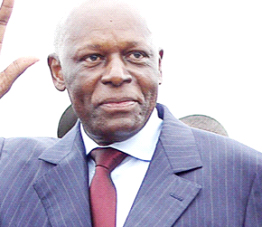LUANDA, (Reuters) – Angolan President Jose Eduardo dos Santos, who has been in power since 1979 and is one of Africa’s longest-ruling leaders, said yesterday he intended to step down in 2018 but gave no reason for his decision and did not name a preferred successor.

Angola, a member of OPEC and Africa’s second largest oil exporter after Nigeria, has been hit hard by the slump in global crude prices. Oil export revenues account for more than 90 percent of foreign exchange revenues.
“I took the decision to leave active political activity in 2018,” Dos Santos, 73, said in a speech to members of his ruling MPLA party’s key decision-making body. He did not elaborate.
Angola holds its next parliamentary election in 2017 and the leader of the winning party will then become president. MPLA leader Dos Santos was re-appointed to a new five-year term as Angolan president in 2012 after his party won a landslide win.
Some Luanda residents expressed surprise that Dos Santos had decided not to step down before the next election.
“The elections are in 2017, not in 2018. He should quit before the elections in 2017,” said Afonso Kangulo, 42, who is jobless and blamed the government for the weak economy.
But Frank Francisco, 48, a public service worker, said: “If he were to quit before the election, maybe people would say he ran away because he would have lost.”
Weak oil prices have hammered Africa’s third largest economy and the government is in discussions with the World Bank and International Monetary Fund about possible financial assistance.
Dos Santos’ mild, inscrutable public demeanour belies his tight control of Angola, a former Portuguese colony where he has overseen an oil-backed economic boom and the reconstruction of infrastructure devastated by a 27-year-long civil war that ended in 2002.
Critics accuse him of mismanaging Angola’s oil wealth and making an elite, mainly his family and political allies, vastly rich in a country ranked amongst the world’s most corrupt.





